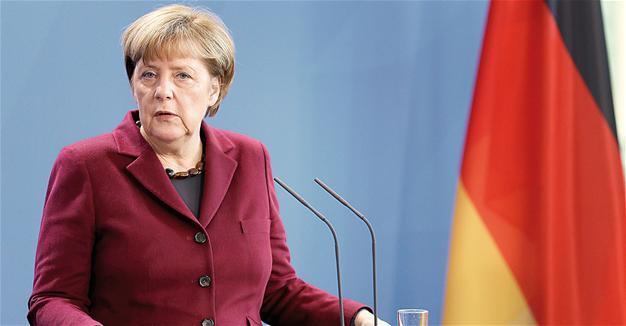Merkel warns of ramped up Russia cyber attacks ahead of vote
BERLIN – Agence France-Presse

Cyber attacks from Russia are now so common that Germany must learn to cope with them as part of daily life, Chancellor Angela Merkel said Nov. 29, after Europe’s top economy suffered its biggest hacking assault.
Almost one million Deutsche Telekom clients were knocked offline from Nov. 27, with Germany’s online security chief describing it as “a hacking attack.”
Merkel said she did not know who was behind the strike, but added that “such cyber attacks, or hybrid conflicts as they are known in Russian doctrine, are now part of daily life and we must learn to cope with them.”
“We have to inform people, and express our political convictions clearly,” she said, calling on the population to “not allow themselves to be irritated” by such rogue operations.
“You just have to know that there’s such a thing and learn to live with it,” she told journalists.
Merkel had said earlier this month that attacks orchestrated by Russia “could also play a role” in Germany’s election campaign next year.
The warning was echoed by the head of foreign intelligence service on Nov. 29.
“Europe is in the focus of these disturbances, and Germany particularly so,” foreign intelligence service chief Bruno Kahl told the Sueddeutsche Zeitung daily in an interview.
There are indications that “cyber attacks are taking place with no reason other than to sow political uncertainty,” said Kahl.
Germany’s biggest telecommunications group Deutsche Telekom became the latest victim of an online assault that lasted over a day from Nov. 27.
“It was quickly clear to us that it was a hacking attack,” Arne Schoenbohm, the head of the Federal Office for Information Security, told the regional newspaper group Funke.
“That is organized crime,” he said, adding that the hackers apparently used the so-called Mirai malware to infect routers, preventing them from connecting to the main network.
The attack could have caused far more destruction, Schoenbohm told Die Welt daily.
“We were lucky this time - the attack didn’t work properly,” he said.
 Cyber attacks from Russia are now so common that Germany must learn to cope with them as part of daily life, Chancellor Angela Merkel said Nov. 29, after Europe’s top economy suffered its biggest hacking assault.
Cyber attacks from Russia are now so common that Germany must learn to cope with them as part of daily life, Chancellor Angela Merkel said Nov. 29, after Europe’s top economy suffered its biggest hacking assault.